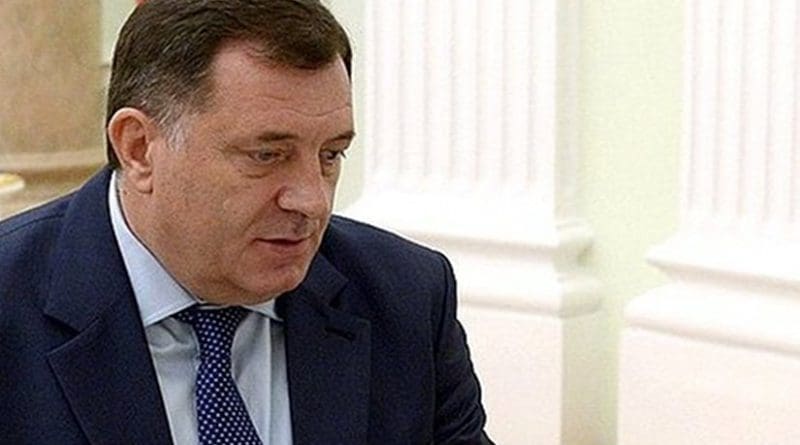Bosnia Should Recognize Crimea As Russian, Says Dodik
By Mladen Lakic
Milorad Dodik, the newly-elected Serb member of Bosnia and Herzegovina’s tripartite presidency, said he will launch an initiative for the country to recognise annexed Crimea as part of Russia.
Milorad Dodik, who won the Serb seat on Bosnia and Herzegovina’s tripartite state presidency at the weekend, told Russian newspaper Izvestia on Tuesday that one of his first moves will be to launch an initiative to recognise Crimea as part of Russia.
“I will put forward such an initiative, and I intend to achieve recognition of the status of Crimea at the [state] level of Bosnia,” Dodik told Izvestia.
Dodik, who is well known for his close ties to Moscow and repeated visits to meet Vladimir Putin, said that Crimea historically belongs to Russia and that he wants to visit the annexed peninsula as soon as possible as a new member of Bosnia’s presidency.
“I would like my first meetings in my new position to be held with the presidents of Russia and Serbia — Vladimir Putin and Aleksandar Vucic,” he added.
Crimea was annexed from Ukraine by Russia in February 2014, but it is still regarded as being part of Ukraine by the US and EU states.
Dodik also told Izvestia that he will prevent Bosnia and Herzegovina from getting involved in any activities to implement the country’s NATO Membership Action Plan, a key step towards joining the Western military alliance.
In October 2017, parliament in Bosnian Serb-dominated Republika Srpska entity passed a largely symbolic resolution declaring the neutrality of Republika Srpska in relation to military alliances – a perceived counterpoint to Bosnian state moves to join NATO.
Dodik also said he would support idea of creation of a Russian-Serbian humanitarian centre in Bosnia, similar to the one that is currently operating in the Serbian city of Nis.
However, decisions made by the Bosnian tripartite presidency are based on a consensus of all three members.

